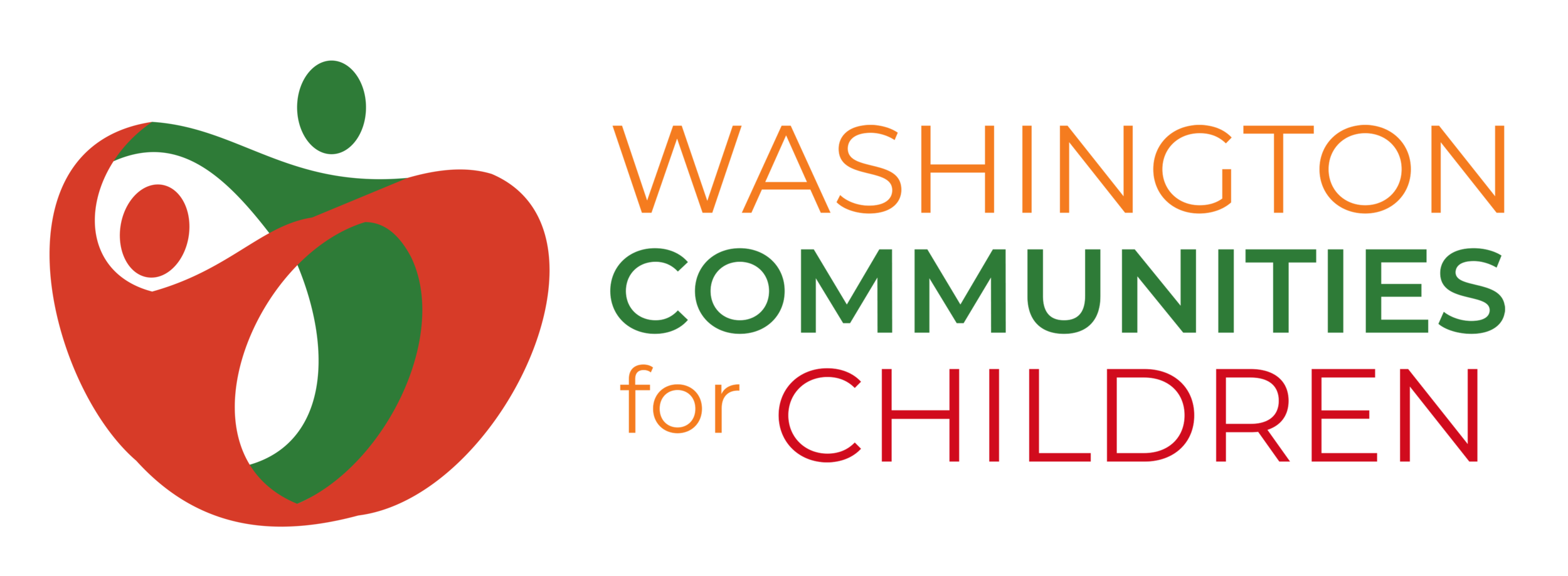Making Space for Conversation: Peninsulas Early Childhood Coalition
Author: Brenna Bream
Peninsulas Early Childhood Coalition (PECC) is home to distinct communities who strive to connect and learn from each other. Elisia Anderson and Marlaina Simmons share the lead role for the coalition, which includes rural communities in Clallam and Jefferson Counties, as well as the more suburban Kitsap County. The region has deep Indigenous roots and large tribal representation, some of whom operate their own early learning coalitions. There is also a sizable military presence with several Coast Guard and Naval bases in the area. Many of these bases provide resources and services to families with children. The region is geographically unique because of waterways and mountains, which underscores the necessity of relationships between local organizations and families.
PECC believes that connections created by relationships can spur growth and change. “It may not be obvious, but having space to have conversations, things come from that,” Marlaina reflects.
The last year has been a season of growth for PECC as they reformed their organizational structure and sought to learn who they are as a network, and what they will pursue together. While it has been a challenge to articulate the regional coalition’s role within local communities during this formational stage, PECC believes that connections created by relationships can spur growth and change. “It may not be obvious, but having space to have conversations, things come from that,” Marlaina reflects. Elisia echoes this, explaining that the regional coalition wants to support partners so they can, “share concerns, make space for conversations to happen and bubble those voices up to the state level when appropriate.” The coalition hopes this facilitation will help them understand who their partners are and the unique challenges they face. For example, donor availability in a rural area is notably different than in a metro area, which makes the region more reliant on state funding. To avoid competing for state dollars, it’s important that the coalition develops effective connections with local organizations to uplift their work through collaboration.
PECC organizational members such as Kitsap Regional Library, Bremerton School District, Central Kitsap School District, Kitsap Community Resources, and Kitsap County Parent Coalition participated in this year’s Juneteenth March and Freedom Festival.
PECC strives to introduce community partners to one another during regional meetings, as promoting visibility opens doors for organizations to work together and provide comprehensive services to families. Additionally, the coalition looks forward to exploring Open Referral , which could effectively link families to local services. However, resource gaps persist. For instance, the DSHS location on the west end of Jefferson and Clallam Counties closed, and its absence negatively impacts young families. There is one child care facility in Forks, and child care providers who are often overworked do not have availability to share their voices in the coalition’s regional conversations. These challenges require collaborative solutions, abated by the support PECC can offer as an inclusive regional network.
As they grow, PECC hopes to learn from different communities and elevate existing efforts. They have been dialoguing about equity in their region through facilitated conversations, which will continue over the coming weeks. The coalition aims to be culturally responsive to the Indigenous communities with whom they coexist, recognizing the historical and generational trauma of their communities, while also respecting the ways in which they independently thrive.
The team from North Olympic Healthcare Network joined the Community Connections Baby Shower on 5/21/2022. This event was hosted by the Perinatal Mental Health Task Force and First Step Family Support Center, and provided over 30 partner organizations’ resources and education to pregnant and new families, to support emotional wellness.
PECC faces dynamic obstacles that highlight the necessity of relationships. Whether the coalition is solving for low resource availability or compelling individual organizations to connect regionally, organizing within a larger network empowers all partners, and increases the potential for families and communities to flourish.


